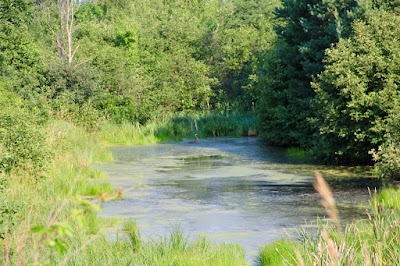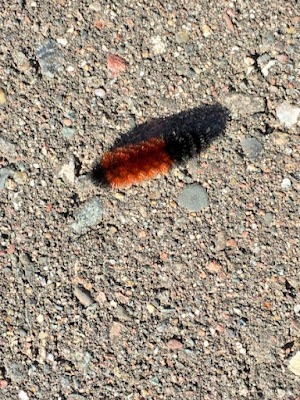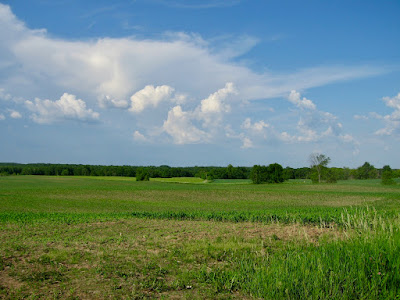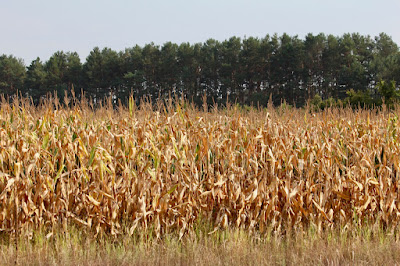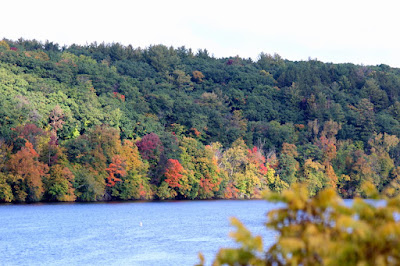Three books have had a disproportionate influence on me in both my professional and my personal life. They are Ian McHarg’s Design with Nature; Aldo Leopold’s A Sand County Almanac; and, Robin Wall Kimmerer’s Braiding Sweetgrass. Today’s posting explores a section of the third book because I’m in the process of deciding if I can figure out how, and how much, of the principles of an honorable harvest can actually be applied in today’s world.
 |
| deer eat the bushes, birds the berries, we harvest what’s left
Photo by J. Harrington
|
Here are the principles under consideration:
The Honorable Harvest, a practice both ancient and urgent, applies to every exchange between people and the Earth. Its protocol is not written down, but if it were, it would look something like this:
Know the ways of the ones who take care of you, so that you may take care of them.
Introduce yourself. Be accountable as the one who comes asking for life.
Ask permission before taking. Abide by the answer.
Never take the first. Never take the last.
Take only what you need.
Take only that which is given.
Never take more than half. Leave some for others.
Harvest in a way that minimizes harm.
Use it respectfully. Never waste what you have taken.
Share.
Give thanks for what you have been given.
Give a gift, in reciprocity for what you have been given.
Sustain the ones who sustain you, and the Earth will last forever.
There are several versions of these principles in publication, but they all convey essentially the same message. As I read them, many, perhaps all of these principles fit much better in a foraging or hunter-gatherer culture than one which depends on industrialized agriculture. But, many (most?) can be applied to small scale agriculture (know your farmer) and foraging and home gardening. (Do any farms have kitchen gardens anymore?) Here are the ones that look to me as if, in one way or another, we could readily do a much better job of respecting:
Know the ways of the ones who take care of you, so that you may take care of them.
[ecosystem services and biodiversity]
Take only what you need.
Harvest in a way that minimizes harm.
Use it respectfully. Never waste what you have taken.
Share.
Give thanks for what you have been given.
Sustain the ones who sustain you, and the Earth will last forever.
[ecosystem services and biodiversity]
The adaptation isn’t perfect but it does represent a profound transformation in attitude and perspective. It may, or may not, offer an alternative to the Gordian knot of using legalistic standards such as “organic” food and regenerative farming. I’m reminded of a very true assessment in a book I recently finished reading. One cannot force another to love them. If we all do much, much better at learning to love and respect the Earth, we may need fewer regulations and have a better chance of lasting forever.
One final observation for today. Notice that the Honorable Harvest protocol is not written down. Now note that Aldo Leopold informs us that:
“I have purposely presented the land ethic as a product of social evolution because nothing so important as an ethic is ever ‘written’… It evolves in the minds of a thinking community.” The Land Ethic, A Sand County Almanac.
We could stand to do a lot more these days to (re?)create “a thinking community.” to help figure out how to harvest honorably, right?
Praise the Rain
By Joy Harjo
Praise the rain; the seagull diveThe curl of plant, the raven talk—Praise the hurt, the house slackThe stand of trees, the dignity—Praise the dark, the moon cradleThe sky fall, the bear sleep—Praise the mist, the warrior nameThe earth eclipse, the fired leap—Praise the backwards, upward skyThe baby cry, the spirit food—Praise canoe, the fish rushThe hole for frog, the upside-down—Praise the day, the cloud cupThe mind flat, forget it all—Praise crazy. Praise sad.Praise the path on which we're led.Praise the roads on earth and water.Praise the eater and the eaten.Praise beginnings; praise the end.Praise the song and praise the singer.Praise the rain; it brings more rain.Praise the rain; it brings more rain.
********************************************
Thanks for visiting. Come again when you can.
Please be kind to each other while you can.
